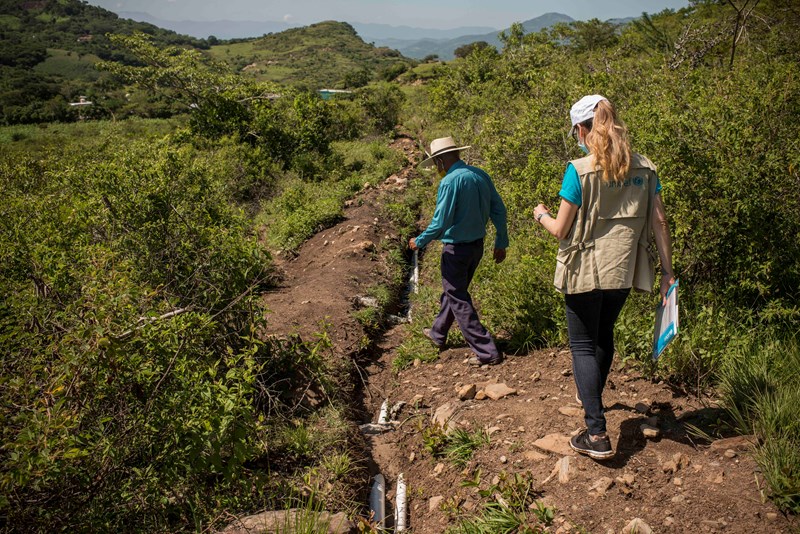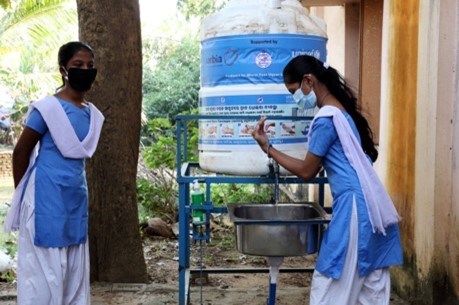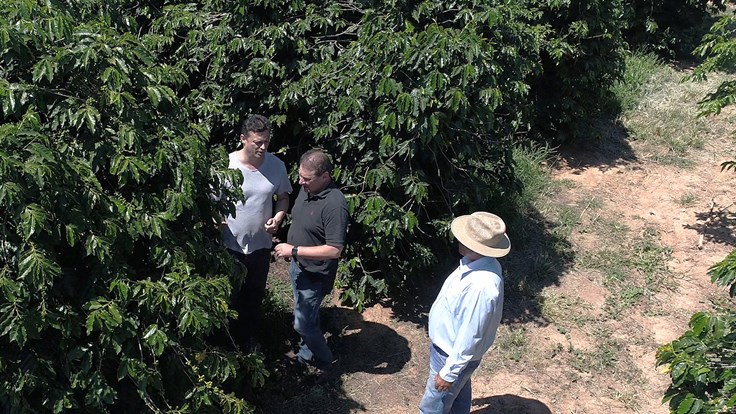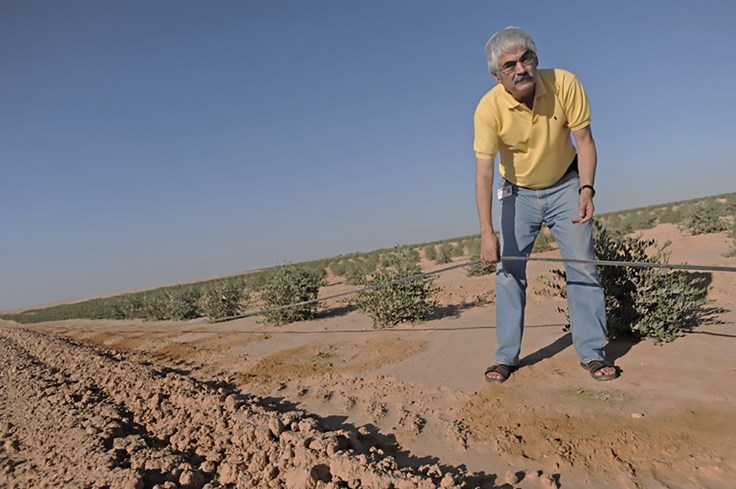Eleven-year-old Naydelin Núñez is a fifth grader at the San Marcos community school in Jutiapa, Guatemala and dreams of becoming an accountant. "I love math," she says, with a smile. Like many girls and boys across the country, Naydelin has been missing school since the world shut down in the face of the COVID-19 pandemic. But she remembers that when she did attend, her building had no running water. “There was always a problem, and water is really necessary. Hopefully we will have water when we go back to school. I know they are working on it.”
For over a decade the San Marcos community faced infrastructure limitations that prevented widespread access to running water, affecting school-aged children in particular. A lack of access to this essential resource was a contributor to dropouts in the region, in addition to health and communicable disease risks.
While water availability is an issue with visible impacts in San Marcos, it is one that stretches to global proportions. One in nine people lack access to safe and clean water around the world, and approximately 40% of the world’s population—or roughly three billion people—do not have access to a hand-washing facility with soap and water at home. This number rises to 75% in the least developed countries, impacting an estimated 900 million children.
Today, access to water and sanitation infrastructure has never been more critical—not only to combat the COVID-19 pandemic but to prevent a range of other infections, reduce correlated ill-effects on healthcare, food security and education delivery and save millions of lives. With many regions and economies under strain, new partnerships between organizational players are becoming essential vehicles to bring life-saving support to those around the world—including students just like Naydelin and the families who most need help.
In a novel partnership, UNICEF and Orbia have joined forces to deliver water and sanitation resources to high-need areas worldwide. By supplying pipe systems and no-touch hand-washing stations to people across Brazil, Colombia, Ecuador, Guatemala, Mexico, Peru, India and South Africa that generate enough water and soap to get through daily life during the pandemic, so many lives have been changed for good.
Redesigning the Water Access Pipeline
In San Marcos, community stakeholders had been trying to solve for water issues since 2005, when they first designed a well, tank, pump and pipeline system to bring running water to their schools, community centers and ultimately their citizens. Unfortunately, problems persisted in terms of system load and demand, compounded by the fact that water needed to pass over 800 meters from the well to the tank. Jesús Maeda Díaz, a community leader from El Pino, said, “the water tank took a long time to refill, up to 12 hours, increasing electricity costs dramatically.” He continued, “the pipes would break every 8 to 15 days. For 11 years, we had these problems, and people were tired of working on repairs.”
Beatriz Barahona, a teacher at the San Marcos school, acknowledged the impact that a lack of water had on her students’ attendance and well-being. “Since 2008, when I started working here, we had a problem with water. This influenced class attendance significantly. Because of the lack of running water in the community, parents needed the support of their children to fetch water for domestic use—and given that the well was located far away, some children could not attend classes. The students who did attend had no water for the toilets or to wash their hands,” said Barahona.
To aid UNICEF in delivering essential COVID-19 sanitation resources, Orbia supported the acquisition of 135 new and better quality pipes to cover the distance between the well and the tank and provide safe running water to over 300 families in San Marcos. "It has been a great blessing," Díaz remarked.
The hope of the entire community lies in knowing that the school will soon have water, and with a little luck, before the school’s reopening.
Powering Hand-Washing Stations—and Students’ Confidence—in Jajpur, India
Jajpur, in Odisha, is one of 10 districts in India that reported the maximum number of COVID-19 cases. Sania Akhtar and Sofia Parveen are both Class 9 students who attend the Barahambada High School at Jajpur, among 500 other girls in the primary and secondary levels. Initially, their families had not been keen to send their daughters to school for safety reasons, but as they saw the girls perform well, they were happy for the enthusiastic learners to continue.
“I feel happy studying in my school,” said Sania, who hopes to join the Indian Administrative Services in the future. “The school has made me confident.”
Eighty percent of the students at Barahambada are the children of farmers, miners and daily wage workers and have to fetch water many times a day from a distant hand-pump for essential use, without home access to it. In these circumstances, hand-washing was never a regular practice, but the pandemic has shifted priorities towards safety and sanitation.
While Barahambada has been closed for many months due to COVID-19, the administrative block has remained open and functional. Occasionally, students like Sania and Sofia have been invited back under special circumstances, such as to pick up exam certificates. While the school has a piped water supply, it did not have adequate sanitation infrastructure prior to the pandemic.
Orbia and UNICEF installed a no-touch hand-washing station at the school that is low maintenance, reliable and easy to use. The pedal-operated structure contains a soap dispenser and piped water from an overhead 500-liter tank: enough to last for an entire school days' worth of use set alongside banners showing proper hand-washing techniques.
This type of station is an innovation in and of itself. as well as a first-time educational experience for many students—all the more crucial for directing new sanitation habits as restrictive measures ease up.
Sofia says that she has been teaching her siblings about the various stages of proper hand-washing, bringing her learnings home.
While the future of water remains a global challenge to address, solving for immediate sanitation challenges can start when access is opened and learning is shared among the next generation as to healthy practices in safe environments. Having access to water in schools is a critical step in creating successful and healthy learning environments.
In a profound way, this is the work that is opening a pipeline of opportunities.
Click here to learn more about the work Orbia and UNICEF are doing together to open access to water and sanitation resources worldwide.








